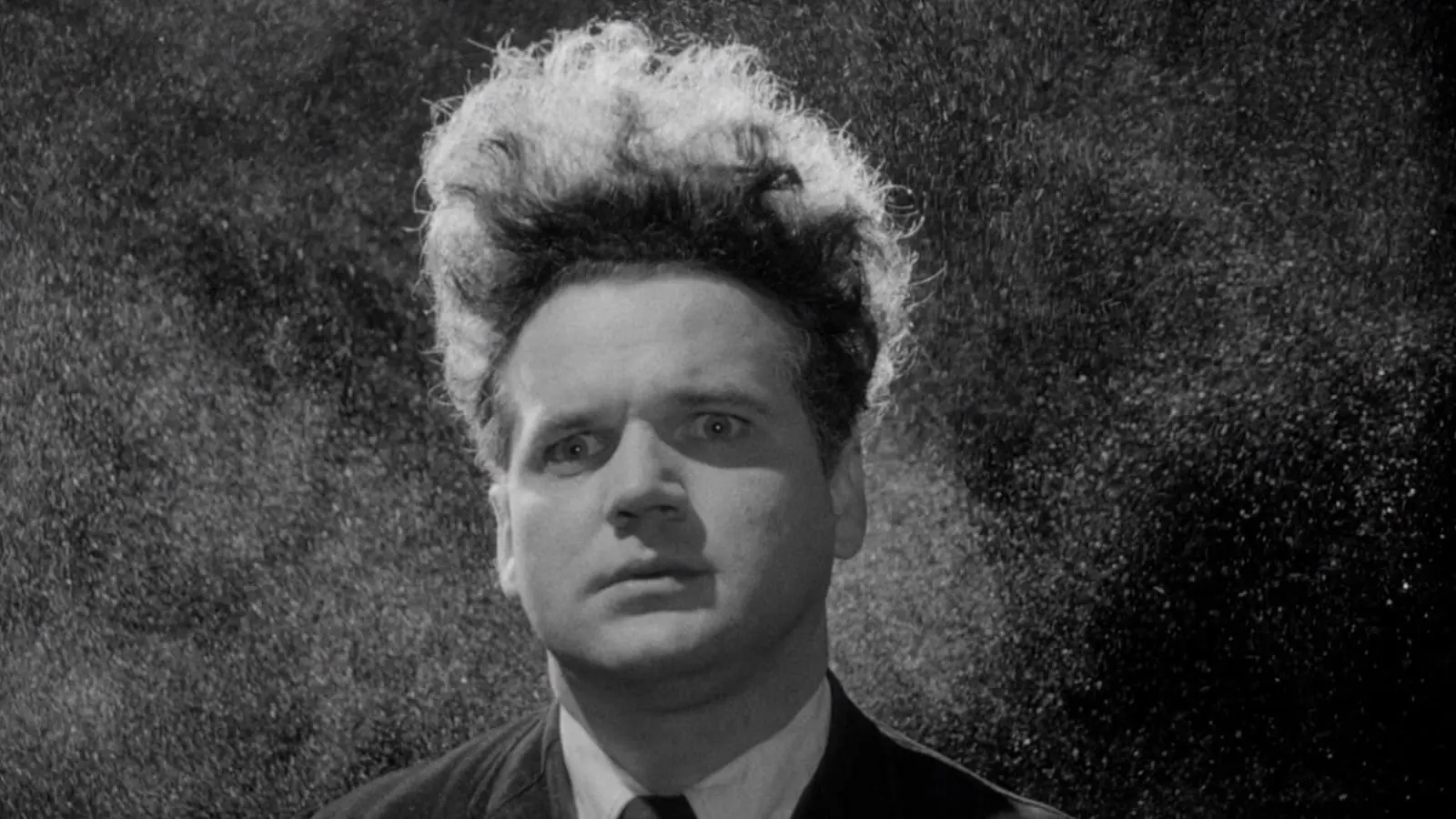Eraserhead is about a man and woman that have a child out of wedlock. It's about the difficulty and fears of becoming a parent.
... but that's not what the movie is actually about. That is, matter-of-factly, the plot of the film. It is what happens on screen. But it's certainly not what the film is about.
Eraserhead is a visual and sonic environment that is completely distinct from almost any other piece of media I have ever seen. It is unambiguously 'not normal'.
In these reviews I always try to avoid spoilers of any kind, but that's not really a fear with Eraserhead. I don't think I could spoil that film if I tried. Because in Eraserhead it's not what happens. I'm not even sure it's how it happens. It's what is. It's a movie that you feel.
I was fortunate enough to see the Harvard Film Archive's original 1977 35mm print of it (which has been kept in fantastic condition) at a sold out show this past weekend. Watching it there, with the inky shadows and the industrial sound was nothing short of an experience. I'm able to sympathize with Lynch's infamous tirade about watching films on a cell phone - it's really not the same 1.
Despite being Lynch's first film, Eraserhead might be his best. Most impressively it transports you to a completely different reality outside of our own, somewhere between a dream and a nightmare where everything has the impression of something familiar but nothing is recognizable. Many of its hypnotic sequences leave lasting impressions.
It is also, strangely, the least Lynchian - or perhaps a Lynch distilled down to his core. Many of the core tenets are present - the interplay between the audio and the visual, the fascination with dream-space. Most importantly, the relentlessness of ideas, so many new ideas both on the screen and in the soundtrack, so many things that no one would think of. As with the rest of his work, the originality on display is astounding.
But there is none of Lynchian camp, the saccharine emotion. The aforementioned screening was, in fact, a double-feature with Wild at Heart, a film that comes in at the opposite end of Lynch's filmography. It is a reality-bending, dreamy film for sure, chock full of fantastical ideas, but it is firmly placed in a recognizable reality. The emotions over-the-top, the monologues overly sentimental.
Eraserhead in comparison is clinical, some aspects of it almost Kubrickian. It may not be a coincidence that Eraserhead was, in fact, Kubrick's favorite movie. It operates on an emotional level but in a higher space and feels like it has more in common with a Quay brothers short than with any piece of live action film from around that time. It has the same unapproachable grandeur of 2001. It is a piece of art.
And the film is as enigmatic as they come. It pleads to be analyzed and understood. Many books have been written about Eraserhead - I can't unpack the symbolism here and do it any sort of justice. But there's so much there for those who are willing to find it.
David Lynch was one of the greatest minds of the past century. No one can do what he did like he did.
Footnotes
-
I'm aware that some people view this attitude as gatekeep-y. Many people, especially nowadays, think of movies as content, a democratic good that everyone has equal access to. But back in 1977 film was something physical that you could only see in special locations at certain times. This type of distribution has more in common with a concert tour than with Netflix. Personally I find a notable difference watching something on even a nice home setup versus watching a 35mm print. ↩
